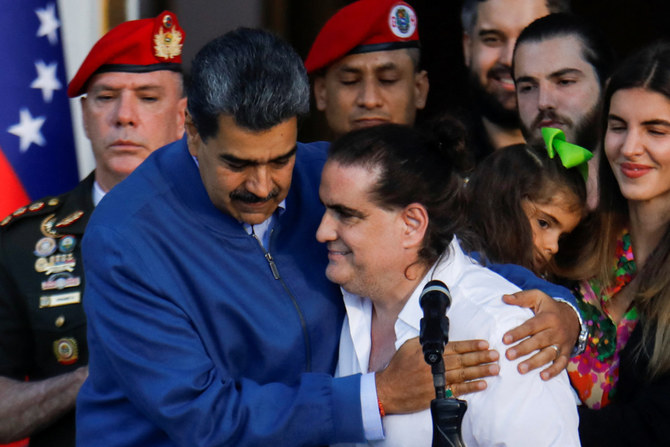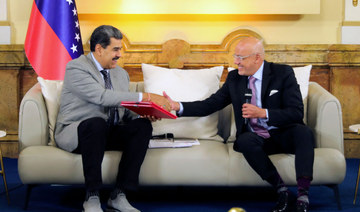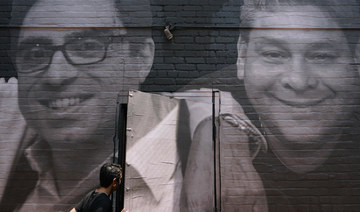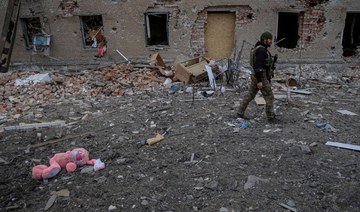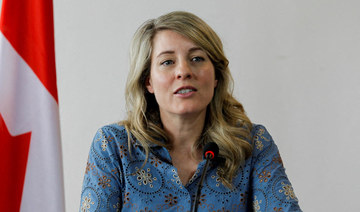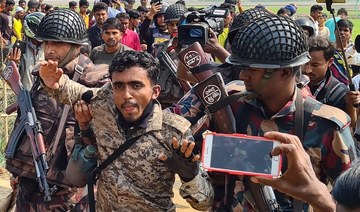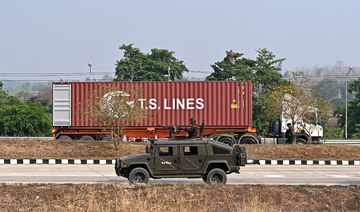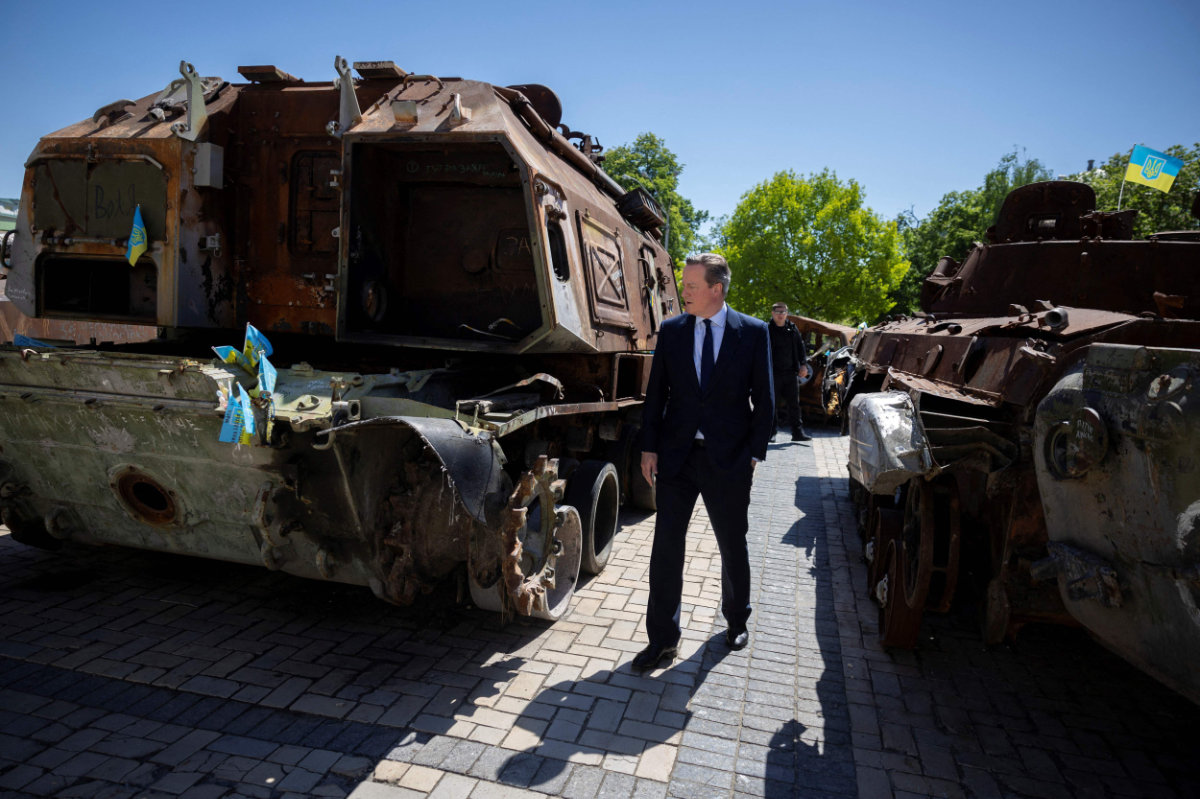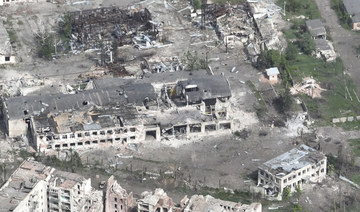MIAMI: The United States freed a close ally of Venezuelan President Nicolás Maduro in exchange for the release of 10 Americans imprisoned in the South American country and the return of a fugitive defense contractor known as “Fat Leonard” who is at the center of a massive Pentagon bribery scandal, the Biden administration announced Wednesday.
The deal represents the Biden administration’s boldest move yet to improve relations with the major oil-producing nation and extract concessions from the self-proclaimed socialist leader. The largest release of American prisoners in Venezuela’s history comes weeks after the White House agreed to suspend some sanctions, following a commitment by Maduro to work toward free and fair conditions for the 2024 presidential election.
The release of Alex Saab, a Maduro associate long regarded as a criminal trophy by Washington, is a significant concession to the Venezuelan leader. US officials said the decision to grant him clemency was difficult but essential in order to bring home jailed Americans, a core administrative objective that in recent years has resulted in the release of criminals who once once been seen as untradeable.
The 10 Americans released include six who have been designated by the US government as wrongfully detained.
“These individuals have lost far too much precious time with their loved ones, and their families have suffered every day in their absence. I am grateful that their ordeal is finally over,” President Joe Biden said in a statement.
The agreement also resulted in the return to US custody of Leonard Glenn Francis, the Malaysian owner of a ship-servicing company who is the central character in one of the largest bribery scandals in Pentagon history.
But the exchange, a major US concession, angered many hard-liners in the Venezuelan opposition who have criticized the White House for standing by as Maduro has repeatedly outmaneuvered Washington after the Trump administration’s campaign to topple him failed.
In October, the White House eased sanctions on Venezuela’s oil industry following promises by Maduro that he would level the playing field for the 2024 election, when he’s looking to add six years to his decade-long, crisis-ridden rule. A Nov. 30 deadline has passed and so far Maduro has failed to reverse a ban blocking his chief opponent, María Corina Machado, from running for office.
Biden told reporters earlier in the day that, so far, Maduro appeared to be “keeping his comment on a free election.” Republicans, echoing the sentiment of many in the US-backed opposition, said Saab’s release would only embolden Maduro to continue down an authoritarian path.
“Disgraceful decision,” Republican Sen. Marco Rubio of Florida, chairman of the Senate Intelligence Committee, posted on X, the social media platform formerly known as Twitter.
The US sanctions remain suspended as part of the deal announced Wednesday. It also requires Maduro’s government to release 21 Venezuelans, including Roberto Abdul, who co-founded a pro democracy group with Machado more than two decades ago, and dismiss three arrest warrants.
Among the Americans behind bars in Venezuela are two former Green Berets, Luke Denman and Airan Berry, who were involved in an attempt to oust Maduro in 2019. Also detained are Eyvin Hernandez, Jerrel Kenemore and Joseph Cristella, who were accused of entering Venezuela illegally from Colombia. More recently, Venezuela arrested Savoi Wright, a 38-year-old California businessman.
The US has conducted several swaps with Venezuela over the past few years, including one in October 2022 for seven Americans, including five oil executives at Houston-based Citgo, in exchange for the release of two nephews of Maduro’s wife jailed in the US on narcotics charges. Like that earlier exchange, Wednesday’s swap took place on a tarmac in the Caribbean island nation of St. Vincent and the Grenadines.
Saab, who turns 52 on Thursday, hugged his wife and two young children as he descended the staircase of a private jet at the Simon Bolivar International Airport. Also present to welcome him was Venezuela’s first lady, Cilia Flores.
Saab was arrested in 2019 during a fuel stop in Cape Verde en route to Iran, where he was sent to negotiate oil deals on behalf of Maduro’s government. The US charges were conspiracy to commit money laundering tied to a bribery scheme that allegedly siphoned off $350 million through state contracts to build affordable housing. Saab was also sanctioned for allegedly running a scheme that allegedly stole hundreds of millions in dollars from food-import contracts at a time of widespread hunger mainly due to shortages in the South American country.
After his arrest, Maduro’s government said Saab was a special envoy on a humanitarian mission and was entitled to diplomatic immunity from criminal prosecution under international law. On Wednesday, it celebrated Saab’s return as a victory for its solidarity efforts around the world and renewed calls for the US to remove all sanctions against the oil-rich country.
“Alex Saab is a victim of the US government’s retaliation for his extraordinary efforts to protect the social rights of all Venezuelans in the face of unilateral coercive measures,” the government said in a statement.
Joseph Schuster,, a lawyer for Saab, welcomed his client’s reunion with his family. “We are also very happy for the American citizens who will be able to rejoin their families for Christmas,” he said.
There was no mention of Saab’s past secret meetings with the US Drug Enforcement Administration. In a closed-door court hearing last year, Saab’s lawyers said that he was for years helping that agency untangle corruption in Maduro’s inner circle and had agreed to forfeit millions of dollars in illegal proceeds from corrupt state contracts.
But the value of the information he shared with the Americans is unknown; some have suggested it may have all been a Maduro-authorized ruse to collect intelligence on the US law enforcement activities in Venezuela. Whatever the case, Saab skipped out on a May 2019 surrender date and shortly afterward was charged by federal prosecutors in Miami.
Meanwhile, millions of Venezuelans who have chosen to remain in their country continue to live in poverty. The minimum wage is about $3.60 a month, just enough to buy a gallon of water. The low wages and high food prices have pushed more than 7.4 million people to leave the country.
The deal is the latest concession by the Biden administration in the name of bringing home Americans jailed overseas, including a high-profile prisoner exchange last December when the US government — over the objections of some Republicans in Congress and criticism from some law enforcement officials — traded Russian arms dealer Viktor Bout for WNBA star Brittney Griner.
The swaps have raised concerns that the US is incentivizing hostage-taking abroad and producing a false equivalence between Americans who are wrongfully detained abroad and foreigners who have been properly prosecuted and convicted in US courts. But Biden administration officials say securing the freedom of wrongfully detained Americans and hostages abroad requires difficult dealmaking.
Making this deal more palatable to the White House was Venezuela’s willingness to return Francis.
Nicknamed “Fat Leonard,” for his bulging 6-foot-3 frame, Francis was arrested in a San Diego hotel nearly a decade ago as part of a federal sting operation. Investigators say he bilked the US military out of more than $35 million by buying off dozens of top-ranking Navy officers with booze, sex, lavish parties and other gifts.
Three weeks before he faced sentencing in September 2022, Francis made an escape as stunning and brazen as the case itself as he snipped off his ankle monitor and disappeared. He was arrested by Venezuelan police attempting to board a flight from Caracas and has been in custody since.



